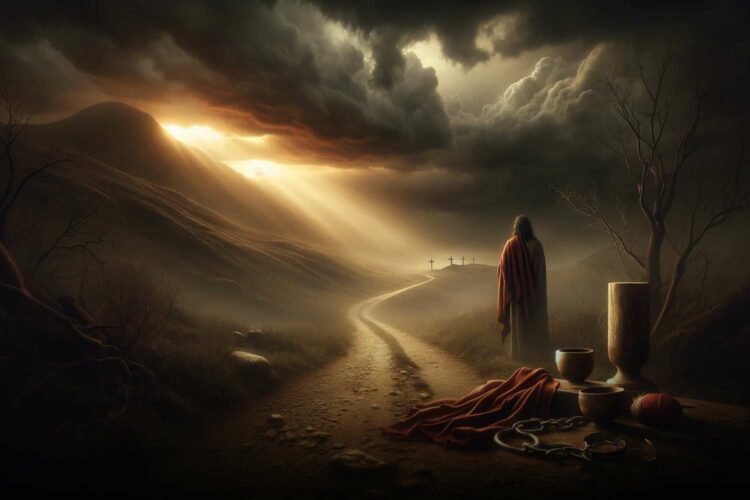A day marked by reflection and reverence, Good Friday commemorates the crucifixion of Jesus Christ and his death at Calvary, a cornerstone event in Christianity.
Why Good Friday is celebrated?
Good Friday is observed on the Friday before Easter Sunday. It is a day when Christians around the world pause to remember the sacrificial death of Jesus Christ on the cross.
This remembrance is central to Christian faith, embodying Jesus’ atonement for humanity’s sins.
Churches worldwide hold solemn services, often incorporating the reading of Christ’s Passion and venerating the cross, to honour this profound sacrifice.
What actually happened on Good Friday?
On this day, the narrative of Jesus Christ’s final hours unfolds with poignant detail and gravity.
After his arrest in the Garden of Gethsemane, Jesus was subjected to a series of trials—first by the Jewish Sanhedrin, then by Pontius Pilate, the Roman governor, and finally, by King Herod.
Despite finding no fault in him, Pilate succumbed to public demand, sentencing Jesus to crucifixion.
Jesus’ journey to Golgotha, the site of his crucifixion, was marked by suffering and humiliation, culminating in his death.
According to the Gospels, darkness fell over the land, an earthquake shook the ground, and the veil of the temple was torn in two at the moment of his death, signifying the profound spiritual significance of the moment.
Jesus’ final hours, his crucifixion, and his subsequent burial are central to Good Friday’s observance, reflecting on themes of sacrifice, redemption, and divine love.
Why is it called Good Friday if Jesus died?
The designation of “Good Friday” might appear contradictory at first glance.
The term “good” in this context is believed to derive from “God’s Friday” or “pious Friday,” indicating a day that is holy and sacred.
Despite the apparent tragedy of Jesus’ death, the day is considered “good” because of the belief that Jesus’ sacrifice was a deliberate act of love, offering redemption and the promise of eternal life to humanity.
This ultimate sacrifice is seen as the fulfilment of God’s plan for salvation, transforming a day of death into a day of spiritual victory and hope.
What should I do on Good Friday?
Good Friday calls for introspection and reverence, urging Christians to engage in fasting, prayer, and meditation on the suffering and sacrifice of Jesus.
Attending church services, reading scriptural accounts of Jesus’ passion, and participating in religious rituals such as the Stations of the Cross are traditional ways to observe this day.
It’s a time to reflect on personal faith and the profound implications of Jesus’ death and resurrection.
What not to do on Good Friday
In keeping with the day’s solemnity, Christians are encouraged to abstain from mundane activities and celebrations.
Traditionally, it is a day of fasting, particularly from meat, symbolising a gesture of sacrifice.
Avoiding excessive entertainment and spending the day in quiet reflection and prayer honours the sanctity of Good Friday.
Why we celebrate Good Friday in South Africa
In South Africa, Good Friday is a public holiday that brings together people from diverse religious and cultural backgrounds.
It serves as a day for collective reflection on the themes of sacrifice, redemption, and unity.
Observing Good Friday goes beyond religious practices, promoting a sense of national community and shared humanity, highlighting the country’s rich cultural fabric and values.






